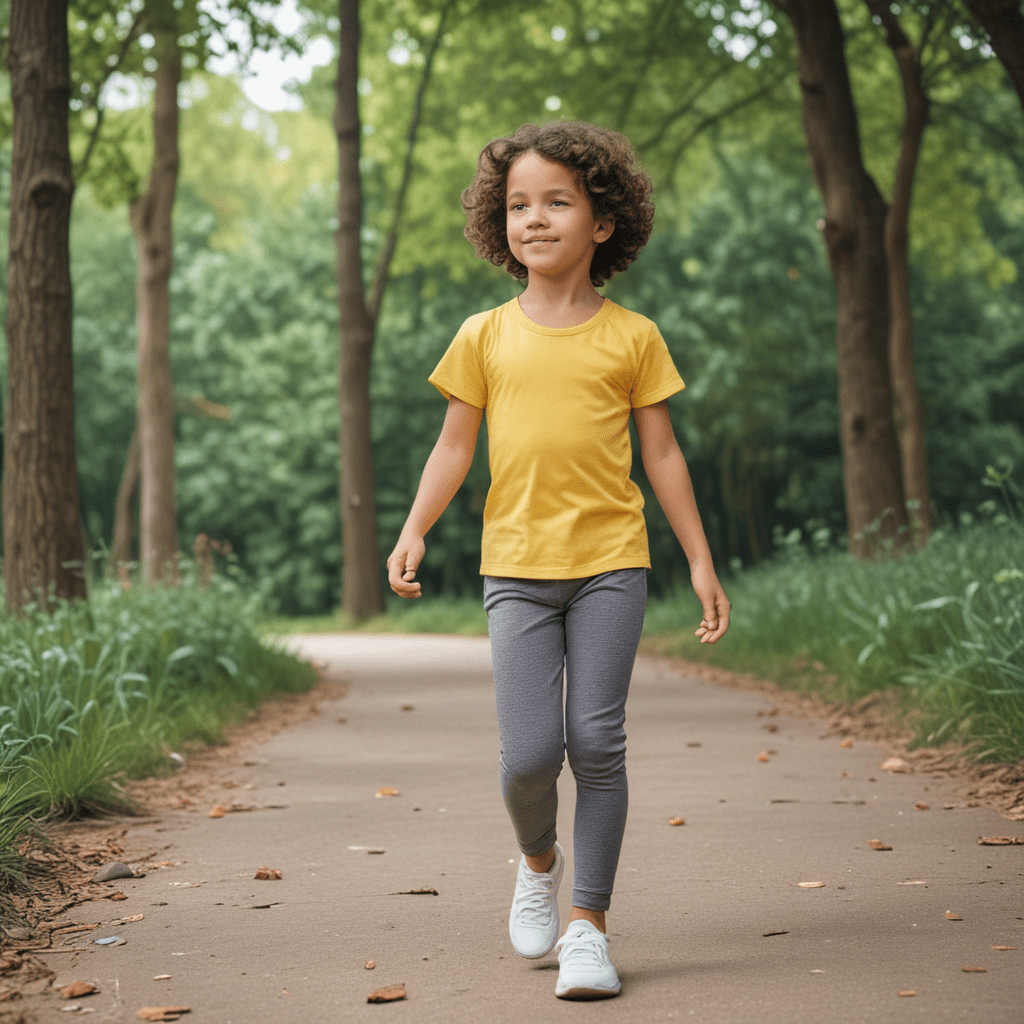
1. Reduces Stress and Anxiety
Mindful walking is a form of meditation that involves paying attention to the present moment while walking. It has been shown to be an effective way to reduce stress and anxiety in children. This is because mindful walking helps children to calm their minds, focus on the present moment, and let go of worries and negative thoughts.
Studies have shown that mindful walking can reduce anxiety symptoms by up to 50%. It can also help children to cope with stressful situations, such as tests, exams, or social events.
2. Improves Mood and Emotional Regulation
Mindful walking can also help to improve mood and emotional regulation in children. This is because mindful walking helps children to become more aware of their emotions and to learn how to manage them in a healthy way.
Studies have shown that mindful walking can improve mood and reduce symptoms of depression and anxiety. It can also help children to develop greater emotional resilience and to better cope with difficult emotions.
3. Enhances Focus and Concentration
Mindful walking can also help to enhance focus and concentration in children. This is because mindful walking helps children to develop their attention and to learn how to stay present in the moment.
Studies have shown that mindful walking can improve attention and concentration in children with ADHD and other attention-related disorders. It can also help children to improve their academic performance and to better succeed in school.
4. Promotes Self-Awareness and Emotional Intelligence
Mindful walking can also help to promote self-awareness and emotional intelligence in children. This is because mindful walking helps children to develop their understanding of themselves and to learn how to identify and manage their emotions.
Studies have shown that mindful walking can help children to develop greater self-awareness and emotional intelligence. It can also help children to build stronger relationships and to better cope with the challenges of growing up.
5. Strengthens Self-Esteem and Body Image
Mindful walking can also help to strengthen self-esteem and body image in children. This is because mindful walking helps children to develop a more positive and accepting relationship with their bodies.
Studies have shown that mindful walking can help children to improve their self-esteem and body image. It can also help children to reduce body dissatisfaction and to develop a more healthy and balanced view of themselves.
6. Reduces Hyperactivity and Impulsivity
Mindful walking can also help to reduce hyperactivity and impulsivity in children. This is because mindful walking helps children to develop greater self-control and to learn how to regulate their behavior.
Studies have shown that mindful walking can reduce hyperactivity and impulsivity in children with ADHD and other attention-related disorders. It can also help children to improve their behavior and to better succeed in school and social settings.
7. Improves Sleep Quality
Mindful walking can also help to improve sleep quality in children. This is because mindful walking helps children to relax and to fall asleep more easily.
Studies have shown that mindful walking can improve sleep quality in children with insomnia and other sleep-related disorders. It can also help children to wake up feeling more refreshed and energized.
8. Encourages Physical Activity and Healthy Habits
Mindful walking is also a great way to encourage physical activity in children. This is because mindful walking is a fun and enjoyable activity that can be done anywhere.
Studies have shown that mindful walking can help children to be more active and to develop healthier habits. It can also help children to reduce their risk of obesity and other chronic diseases.
9. Fosters a Positive Relationship with Nature
Mindful walking can also help children to develop a positive relationship with nature. This is because mindful walking encourages children to pay attention to the beauty of their surroundings and to appreciate the simple things in life.
Studies have shown that mindful walking can help children to develop a greater appreciation for nature and to spend more time outdoors. It can also help children to develop a greater sense of well-being and happiness.
10. Supports Overall Well-being and Resilience
Mindful walking can also help to support overall well-being and resilience in children. This is because mindful walking helps children to develop greater self-awareness, emotional intelligence, and a positive relationship with themselves and the world around them.
Studies have shown that mindful walking can help children to be more resilient to stress, anxiety, and adversity. It can also help children to develop a more positive outlook on life and to better cope with the challenges of growing up.
FAQs
1. How can I get my child started with mindful walking?
To get your child started with mindful walking, simply find a quiet place to walk and encourage your child to pay attention to their surroundings. Ask them to notice the sights, sounds, smells, and feelings of the present moment. You can also guide them to focus on their breath or to count their steps.
2. How long should my child practice mindful walking?
Start with short sessions of mindful walking, such as 5 or 10 minutes, and gradually increase the duration as your child becomes more comfortable. It's important to be patient and to let your child explore mindful walking at their own pace.
3. What are some benefits of mindful walking for children?
Mindful walking has many benefits for children, including reducing stress and anxiety, improving mood and emotional regulation, enhancing focus and concentration, promoting self-awareness and emotional intelligence, strengthening self-esteem and body image, reducing hyperactivity and impulsivity, improving sleep quality, encouraging physical activity and healthy habits, fostering a positive relationship with nature, and supporting overall well-being and resilience.


